Alumni Spotlight Carter School Alumna and Pulitzer Prize Writer April Umminger

One of our finest alumni, April Umminger, who received her master's degree in 2015 from the Carter School (formerly ICAR) talks to us about her career in communications and how she used peacebuilding strategies and skills to transform her career in journalism, which led to being part of a Pulitzer Prize-winning team. Enjoy reading Umminger's interview.
You’ve had a remarkable career spanning journalism, corporate communications, and crisis management. Can you walk us through key turning points that shaped your professional growth—and what ultimately led you to pursue a master’s degree in peace and conflict resolution? In August 2008 I was awarded a Rotary International Ambassadorial Scholarship to Venezuela. For those of you not familiar, Rotary is a fantastic organization and has many international scholarship opportunities for professionals and those enrolled in school. Living in Venezuela at this time, during Chavez and when violence and kidnappings were rising, was a real eye-opening experience. Just seeing the level of systemic and everyday conflict that was just accepted as part of day-to-day life made me want to study conflict and conflict resolution.
What specific skills did you gain from that educational experience, and how did the Carter School (ICAR, SCAR) prepare you for a career in communications? The Carter School provided me with a structured way to approach conflict, in daily life as well as in communications. I’d worked as a journalist for more than a decade when I came to the program. The education allowed me to understand and contextualize conflict arcs better in different situations — it also changed how I showed up as a communications strategist or reporter. In terms of strategy, the program helped me understand that conflict doesn’t have to be zero-sum and, in most situations, both sides are “right.” This program has helped me navigate the gray areas.
For Pulitzer-winning reporting to advising Fortune 500 executives, what skills or principles have remained constant throughout your career regardless of industry? Tenacity. That ability to continue to pursue a story, a project, a career, an interest, what have you, when you’re constantly hitting a “no,” that is the skill that I see in the people that have flourished and endured in communications and most industries.
You’ve led communications during some of the highest stake moments—data breaches, executive transitions, even COVID-19 response. What’s your framework for managing a corporate crisis from a conflict analysis approach (I know this is a detailed question-- priority highlights or short summary is sufficient)? Responding versus reacting is the north star that I go back to in crisis communications and news events. Most industries have crisis playbooks and protocols during these sorts of situations and moments. The most easy and difficult thing to do during a crisis is stick to the plan, stick to the message. There is always a temptation to react to every piece of information coming your way but that will almost always create more problems.
You’ve secured top-tier media placements in outlets like NPR, the New York Times, and BBC. What is/was your approach to crafting a pitch that cuts through todays media noise? At USA TODAY we had to answer the questions, “why now, so what” about pretty much any story that we wanted to report. Pitches need to answer those questions in the first sentence to a reporter. Also, shorter is better. Any pitch that’s more than two paragraphs is probably too long. The trouble is that pitches that are likely to land with reporters are unlikely to make it through corporate and legal review in many organizations. Having relationships with members of the media is still very important, partly for this reason.
How has the evolution of digital storytelling and social media changed your strategy when it comes to earned media and brand credibility? In terms of strategy, we are now a visual-first society. I’ve always thought in terms of audience and objective, but with storytelling at the speed of now, having a visual explanation is a central component to my strategies. It is a paradox. With a 24-hour news cycle, a crisis is likely to pass quickly, but the images associated with an event are out there on the internet forever.
You’ve worked across corporate agency, and newsroom environments? What advice would you give to the next generation of peacebuilding practitioners interested in the communications field and trying to find where they fit in the communication and media ecosystem? To think in terms of education versus advocacy. Conflicts are so deep and full of nuance, and, I deeply believe, media is the best way to bring about a deeper understanding of what different sides are experiencing or what different issues are about.
Your decision to study peace and conflict resolution adds interesting layer to your work in corporate environments. How has that training influenced your approach to managing internal communications, conflict, or organizational change? It’s helped me to anticipate where and how people will react to conflict and change. Change management and the change curve is enjoying a moment in corporate consciousness now. And learning about these different instances and responses to conflict and change – be it external or organizational – allows me to better anticipate the strategies and messages I should develop, what is needed for them to have the best outcome. The Carter School also helped me thinking in terms of monitoring and evaluation and quantitative ways to tell if communications are, indeed, effective.
With such a high-intensity career how do you decompress? What do you enjoy doing in your spare time that helps restore energy and creativity? I love to travel, particularly to South America. I’ve also taken ballet all my life. I am a rare Arlington local, and have taken at Arlington Center for Dance/Ballet Nova Center For Dance on-and-off since they first opened on Columbia Pike in the 1980s.
Having had such an impactful career, what is next for April Umminger? Right now, I am just enjoying seeing what is next in the news – so much is changing with AI and communications! I’m enjoying working in mission-driven organizations and hope to continue to work with and support the Carter Center and peacebuilding programs any way that I can, for as long as I can.
Thank you April Umminger for granting us this interview!
Contact tcsalum@gmu.edu to share your story!
Alumni News and Engagement Newsletter Archive
2025 Presidential Award for Faculty Excellence Recipient
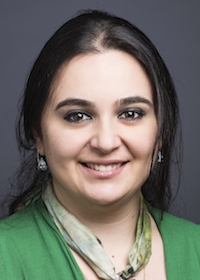
Margarita Tadevosyan, PhD '19, is the recipient of the 2025 Presidential Awards for Faculty Excellence. Tadevosyan is a research assistant professor and executive director of the Center for Peacemaking Practice at the Jimmy and Rosalynn Carter School for Peace and Conflict Resolution. She is a scholar-practitioner of conflict resolution and local peacebuilding, with a focus on South Caucasus and other post-Soviet areas. Specifically, she focuses on long-term peacebuilding, local conceptions of peace, local practices to build peace, and ways that international and local peacebuilders can work together respectfully. Tadevosyan’s social impact involves fostering dialogue and cooperation between communities that have experienced long-standing conflicts. Recipients are selected by a review committee that includes prior award recipients and senior leaders from relevant areas.
2025 Adjunct Teaching Excellence Award Recipient
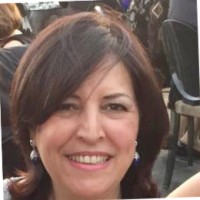
Alma Abdul-Hadi Jadallah, PhD '06, is a professor at the Carter School for Peace and Conflict Resolution and is an internationally recognized scholar-practitioner in conflict prevention and mitigation with a personal and professional commitment to global peace and the peaceful resolution of conflict. Dr. Jadallah teaches graduate-level courses in conflict analysis and resolution. The Stearns Center for Teaching and Learning honors a faculty member each year who has made significant, lasting contributions to educational excellence at George Mason University. These awards are Mason’s highest recognition for faculty members who demonstrate exceptional skill in and commitment to their teaching and learning practices.
Mason Korea, 2025 Teaching Excellence Award Winner
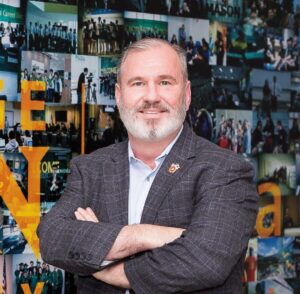
Roland B. Wilson, PhD '15 is the program coordinator, professor and faculty advisor for the School for Analysis of Conflict and Resolution at George Mason University’s new campus in South Korea. He is also the Peace and Conflict Studies Center Asia director, an international mediator and consultant. Wilson possesses more than 30 years of combined military, government and academic experience and has written about a myriad of complex subjects, including Asia Pacific relations, foreign policy, diplomacy, and security and conflict issues. He has lived in East Asia for more than 25 years and speaks Korean at a professional-level.
Kimiko Lighty Awarded Alumni Service Award 2024

Kimiko Lighty, MAIS ’10, received the Alumni Service Award. She is the founding executive director of Restorative Arlington (RA). An innovator in peace building and conflict resolution techniques, Lighty has been involved with RA since the initiative began in 2020. She led the design and implementation of RA’s Heart of Safety Restorative Justice Conferencing Program, a diversion program serving Arlington’s public schools, legal system, and community, and continues to serve as a strategic advisor to the organization. In partnership with the non profit Doorways, RA has been awarded a five-year $1.5 million grant award from the federal Office on Violence Against Women to address harms resulting from intimate partner violence, dating and domestic violence, stalking, and sexual assault.
Mohammed Abu-Nimer, PhD '93, named Abdul Aziz Said Endowed Chair 2023 at American University
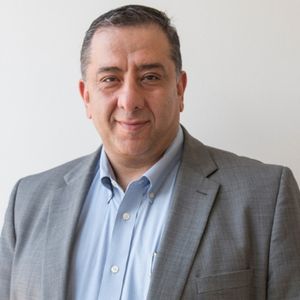
American University announced the establishment of the Abdul Aziz Said Chair in International Peace and Conflict Resolution at the School of International Service (SIS). SIS Professor Mohammed Abu-Nimer was selected to serve as the inaugural chair holder to advance the development and adoption of faith-informed peace interventions.“It’s very meaningful for me to be the inaugural chair,” said Abu-Nimer. “I shared a journey with Professor Said for over 22 years since I joined AU. We worked together very closely, sharing many ideas and the values and views on building [programs] and supporting diversity and inclusion both in our own AU community and in conflicts around the world. It’s an exciting and honorable occasion for me.”
2022 Graduate of the Last Decade (G.O.L.D.) Award
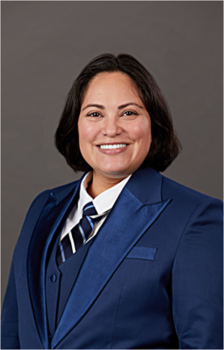
Raquel Gonzalez, MS ' 12, is a queer, Latinx, first-generation college graduate who has championed social and racial justice as a government executive, organizer, and leadership development practitioner. As a strategy, operations, and culture consultant, they help organizations operationalize DEIJ goals, improve employee engagement, optimize recruitment processes, and plan for equitable growth.They have been recognized as George Mason University’s (GMU) 2022 Graduate of the Last Decade, the 2022 Community Mentor with the Public Leadership Education Network, a 2022 National LEAD trainer for New Leaders Council, a 2021 Political Partner with the Truman National Security Project, and one of The Hispanic Coalition of New York’s 2018 ‘40 Under 40 Rising Latino Stars’.
